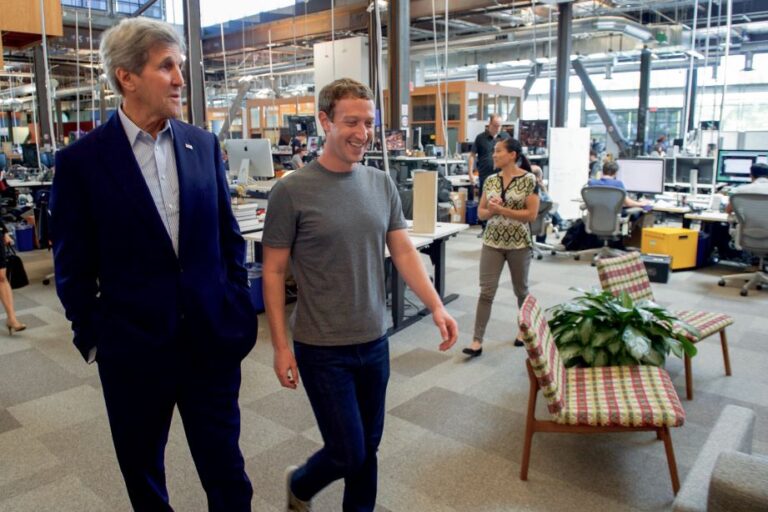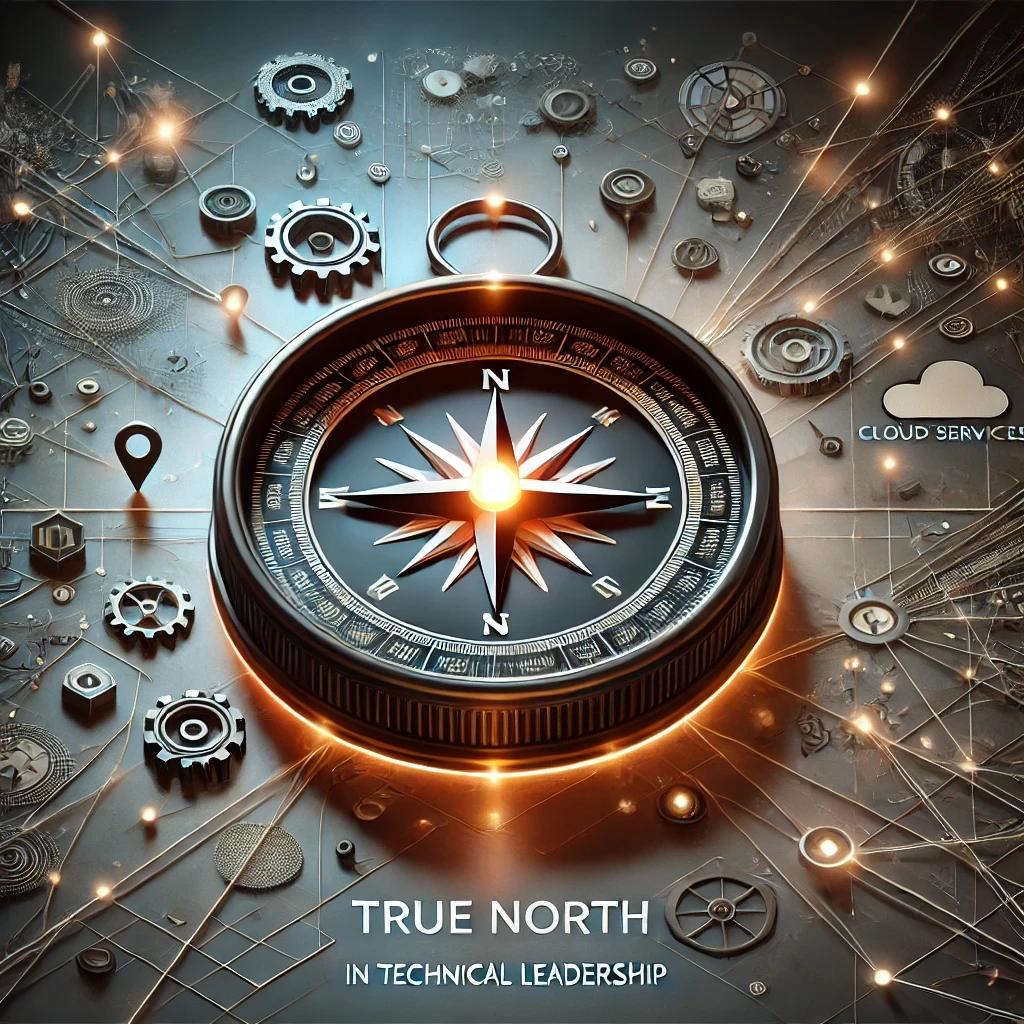The technological landscape has been dramatically reshaped over the decades by a select group whose vision and innovation have ushered in new eras of progress and possibility. These greatest tech leaders of all time have founded and led some of the world’s most successful companies and have fundamentally changed how we live, work, and communicate. Their contributions span various fields, from creating personal computers to the rise of the internet, e-commerce, mobile technology, and beyond.
These influential tech leaders have proven that technology is not just about hardware and software; it’s about the ideas and the people behind them that drive society forward. The titans of the tech industry have often started as pioneers with a single insightful idea that evolved into empires, influencing almost every aspect of our daily lives. From modernizing communication platforms to spearheading advancements in artificial intelligence, these individuals have set the bar for what it means to be a revolutionary in the tech world.
Table of Contents
Key Takeaways
- Visionary tech leaders have fundamentally transformed society with their innovations.
- These 21 greatest tech leaders of all time have contributed significant advancements across various sectors, including computing, the internet, and AI.
- Their lasting impact continues to shape the future of technology and its role in our lives.
Pioneers of the Personal Computer
The evolution of the personal computer is credited to influential leaders who have revolutionized technology and consumer behavior. They’ve spurred the creation of groundbreaking software and devices, setting the foundation for the digital age.
Bill Gates and Microsoft
When you think of the greatest tech leaders of all time, Bill Gates is usually number one. Bill Gates co-founded Microsoft, a cornerstone in the personal computing revolution. Gates and Microsoft brought computing to the masses with the development of MS-DOS, followed by the Windows operating system. This GUI-based OS transformed how users interacted with computers, making them more user-friendly and accessible. The subsequent iterations of Windows, including Windows 10, solidified Microsoft’s position as a PC giant.
Steve Jobs and Apple
Steve Jobs co-founded Apple, an icon of innovation and design in the tech industry. Jobs was instrumental in popularizing the personal computer with the introduction of the Apple II. His vision went beyond computers, as he later oversaw the creation of the iPhone, a device that changed the telecommunications landscape and became embedded in the fabric of modern society. Apple’s intuitive design and pioneering software have left a lasting impact on personal computing.
Titans of the Internet Age
In the dynamic landscape of the Internet Age, several leaders have forged paths that shaped the very fabric of technology and commerce. Their ventures into realms like social media, e-commerce, and search engine technology have not only redefined consumer behavior but also set new precedents in using artificial intelligence (AI) and cloud computing.
Jeff Bezos and Amazon
Jeff Bezos established Amazon, initially starting as an online bookstore, which evolved swiftly into a behemoth e-commerce platform. Under his leadership, Amazon expanded its offerings and leveraged cloud technology to become a key player in web services. Introducing AI through innovative products like Alexa underlined Amazon’s role in integrating technology with daily life, setting a high bar for competitors and new entrants alike.
Mark Zuckerberg and Facebook
Mark Zuckerberg created Facebook, a platform that significantly altered the social media landscape. It became a blueprint for modern social networks, connecting billions of users and providing a new medium for digital social interaction, targeted advertising, and information dissemination. Facebook’s foray into virtual reality and its sustained emphasis on connecting people have kept it at the forefront of social media evolution.

Larry Page and Sergey Brin of Google
Google, co-founded by Larry Page and Sergey Brin, quickly transitioned from a research project to the world’s most popular search engine, profoundly influencing information access and the advertising industry. It propelled Internet usage by making vast amounts of information readily accessible. Over time, Google has made strategic advances in AI, cloud services, and a wide array of digital services, cementing its position as a primary axis of the digital era.
Innovators in E-Commerce and Cloud Computing
E-commerce and cloud computing have revolutionized the way businesses operate and consumers shop. This section explores the transformative contributions of Jack Ma with Alibaba, Reed Hastings with Netflix, and Marc Benioff with Salesforce to these respective fields.
Jack Ma and Alibaba
Jack Ma founded Alibaba (seen here giving a speech), which has become synonymous with e-commerce in China and beyond. Ma’s vision led to Alibaba offering services that encapsulated online retail, cloud computing, and digital payments. Notably, Alibaba’s annual Singles’ Day event has consistently shattered sales records, underlining the effectiveness of its e-commerce platform.
Reed Hastings and Netflix
Reed Hastings co-founded Netflix, steering it from a DVD rental service to a streaming giant that has substantially impacted the entertainment industry. Netflix’s transition to cloud computing, powered through a strategic partnership with Amazon Web Services (AWS), enabled it to scale massively, ensuring smooth delivery of content to millions worldwide. The AWS products fuel many of the other greatest tech leaders of all time.
Marc Benioff and Salesforce
Marc Benioff established Salesforce, the pioneer of cloud-based customer relationship management (CRM) software, transforming how companies interact with customers. Salesforce’s innovative approach to cloud computing provided businesses with a comprehensive, scalable solution for sales, service, marketing, and more, setting a new standard in the CRM industry.
Revolutionaries in Mobile and Communications
This section underscores the transformative impact of key individuals like Tim Cook and Satya Nadella, whose leadership at Apple and Microsoft has significantly advanced mobile and communications technologies.
Tim Cook and the Apple Watch
Since assuming the CEO role at Apple, Tim Cook has been instrumental in continuing the company’s trcompany’sf innovation and expanding its reach into the wearable technology market. The Apple Watch has been a significant addition to Apple’s product lApple’sfering capabilities that stretch beyond timekeeping to health monitoring and seamless integration with other Apple devices, effectively creating a new standard in the wearable device industry.
Satya Nadella and Microsoft's Revival
Under Satya Nadella’s leadership, Microsoft has experienced what many would regard as a revival. Particularly in its approach to mobile and telecom. While Microsoft’s early smartphone efforts faced challenges, Nadella shifted the company’s focus toward services and cloud computing. This is bringing a new level of integration and efficiency to telecom and enterprise communications. His approach emphasizes inclusivity in the tech ecosystem. This approach is ensuring that Microsoft’s products and services bolster productivity for a broad spectrum of users across various devices.
By steering their respective companies through the evolving landscape of mobile technology and telecommunications, both Tim Cook and Satya Nadella have ensured that their companies not only adapt but also actively shape the future of how we connect and communicate.
Architects of Artificial Intelligence and Machine Learning
In artificial intelligence (AI) and machine learning (ML), there are pivotal figures whose leadership and innovation have been instrumental in shaping the industry. These architects have paved the way for advancements in AI research. They are leading to transformative technologies that impact numerous facets of society. It will be interesting to see where AI takes us in the coming years, but undoubtedly, these two are some of the greatest tech leaders of all time.
Demis Hassabis of DeepMind
Demis Hassabis co-founded DeepMind, an organization known for its significant contributions to AI through deep learning and neural networks. Hassabis’ work combines neuroscience and AI, leading to the development of algorithms capable of learning from raw data. DeepMind’s achievements under his leadership, such as AlphaGo, excel in complex games but also aid in solving intricate scientific problems.
Meredith Whittaker, AI Researcher
Meredith Whittaker is a seasoned AI researcher who has emphasized the meticulously ethical development and scrutiny of AI technologies. She co-founded the AI Now Institute, which examines AI’s social implications, ensuring that AI systems are held to high accountability standards. Whittaker’s research and advocacy for public understanding of AI highlight the critical need for responsible and equitable AI innovation.
Leaders in Social Media and Communication Platforms
This section examines the pivotal roles that Jack Dorsey and Brian Chesky have played in shaping the realms of social media and modern communication.
Jack Dorsey and Twitter
Jack Dorsey co-founded Twitter, a platform revolutionizing real-time communication and public discourse. Under his leadership, Twitter became a global phenomenon, becoming an essential tool for social engagement and news dissemination. Dorsey’s approach to social media innovation positioned him as a central figure in the tech industry.
Brian Chesky and Airbnb
Brian Chesky’s contribution to modern communication platforms extends beyond social media into the sharing economy. As the co-founder and CEO of Airbnb, Chesky transformed how people travel and connect with new destinations. Airbnb’s peer-to-peer lodging platform disrupted traditional hospitality models and fostered a new community-based interaction and accommodation era.
Front-Runners in Transportation and Energy
The transportation and energy sectors have been revolutionized by visionary leaders who have pushed the boundaries of innovation with electric vehicles and ride-sharing platforms. These advancements have altered people’s commute and challenged the traditional automotive industry and urban transportation models.
Elon Musk and Tesla

Elon Musk’s company, Tesla, spearheaded the popularization of electric cars, setting a new precedent for the automotive industry. Known for high-performance electric vehicles, Tesla has made significant strides in sustainable energy with innovations in battery technology and renewable energy solutions. Under Musk’s leadership, Tesla has aimed to accelerate the world’s transition to sustainable energy while exploring the potential of self-driving cars to disrupt traditional notions of personal transportation.
- Company: Tesla
- Founder: Elon Musk
- Products: Electric Cars, Solar Energy, Battery Storage
- Innovation: Self-driving Car Technology
Travis Kalanick and Uber
Travis Kalanick co-founded Uber, transforming personal transportation with the ride-sharing model that has become ubiquitous across cities worldwide. Uber’s platform provides a convenient alternative to public transportation and taxis, facilitated through a mobile app connecting riders with drivers. Kalanick’s role in Uber reshaped urban mobility, and the company has expanded its reach by experimenting with food delivery services and advancing towards self-driving car technology, further innovating the transportation sector.
- Company: Uber
- Co-Founder: Travis Kalanick
- Primary Service: Ride-Sharing
- Additional Services: Food Delivery, Freight, Autonomous Vehicles
Advancements in Health Technology and Biotech
Health technology and biotech have seen incredible advances, shaped significantly by visionary leaders and their companies. They have pushed the boundaries of healthcare and innovation through technological achievements and extensive research, some hailing from the heart of Silicon Valley.
Anne Wojcicki of 23andMe
Anne Wojcicki, the co-founder and CEO of 23andMe, has made substantial contributions to genetic testing and personalized healthcare through her company. 23andMe provides direct-to-consumer genetic testing services, which allow individuals to gain insight into their heritage and identify potential health risks based on their DNA. This service has opened a new avenue for individuals to participate in personal health management actively and contributed to the broader conversation on privacy and ethics in genetic data handling.
Expansion of Virtual and Augmented Reality
As the digital landscape evolves, virtual and augmented reality have expanded significantly, thanks mainly to pioneering leaders and innovative companies in the tech industry.
Palmer Luckey and Oculus
Palmer Luckey transformed the virtual reality sector by founding Oculus and developing the Oculus Rift, a groundbreaking VR headset. This device catalyzed the modern VR movement, offering immersive gaming and interactive experiences. Luckey’s vision and Oculus’s subsequent iterations continue to advance virtual reality’s reach and capability, positioning Oculus as both an innovator and a household name in the VR space.
Rony Abovitz of Magic Leap
Rony Abovitz, the founder of Magic Leap, has been instrumental in pushing the boundaries of augmented reality. With the introduction of the Magic Leap One headset, Abovitz’s company has taken significant steps toward blending the physical and digital worlds by overlaying holographic images onto the user’s real-world view. Magic Leap’s technology demonstrates immense potential for transforming people’s interaction with digital content.
Growth of Enterprise Technology and Services
Enterprise technology has grown significantly, driven by innovative technology leaders committed to enhancing collaboration and server capabilities. Notably, the co-founders of Slack have transformed the landscape of business communication, while Jensen Huang has led Nvidia to new heights in server processing power.
Co-founders of Slack
Stewart Butterfield and his fellow co-founders pioneered Slack, which rapidly became a cornerstone of enterprise collaboration. Focusing on streamlining communication enabled organizations to improve their operational efficiency. Slack’s intuitive platform supports internal messaging and file sharing and integrates with various enterprise tools, making it vital for today’s tech ecosystems.
Jensen Huang and Nvidia
Jensen Huang, co-founder of Nvidia, has strategically catapulted the company into a server industry powerhouse. Under his leadership, Nvidia has excelled in graphics processing and revolutionized data center operations with its powerful GPUs, boosting the capabilities of enterprise servers to handle complex computation and AI workloads with unparalleled efficiency.
In Conclusion
A cadre of leaders has indisputably shaped the landscape of technology. Their vision and innovation have propelled the digital age forward. With his indelible impact on personal electronics, Steve Jobs stands out for his role in transforming handheld devices and influencing the future trajectory of tech companies. His philosophy and the products he championed have left a lasting impression on the field.
Tim Cook took the helm at Apple and has continued to consolidate the company’s status as a tech powerhouse. His leadership has been central to Apple’s enduring brand success post-Steve Jobs’ era. It emphasizes product innovation and the importance of corporate social responsibility and environmentalism in modern corporate strategy.
Jack Dorsey has been pivotal in constructing the social media landscape with Twitter and has ventured into payment systems with Square. His dual role showcased an ability to multitask in the tech industry while pushing the envelope regarding what social platforms and financial tech can accomplish for connectivity and commerce.
These figures, among others, represent just a fraction of the leadership that has helped forge the path of technological progress. Throughout their diverse journeys, they’ve managed to change how people interact with technology, altering daily life, business, and communication worldwide.
Their legacies encourage upcoming leaders to innovate, thus ensuring the continuous evolution of technology, which prompts anticipation for what the future holds in a rapidly changing digital world.
*Images on this page are covered by Public Domain Mark 1.0 Universal.



